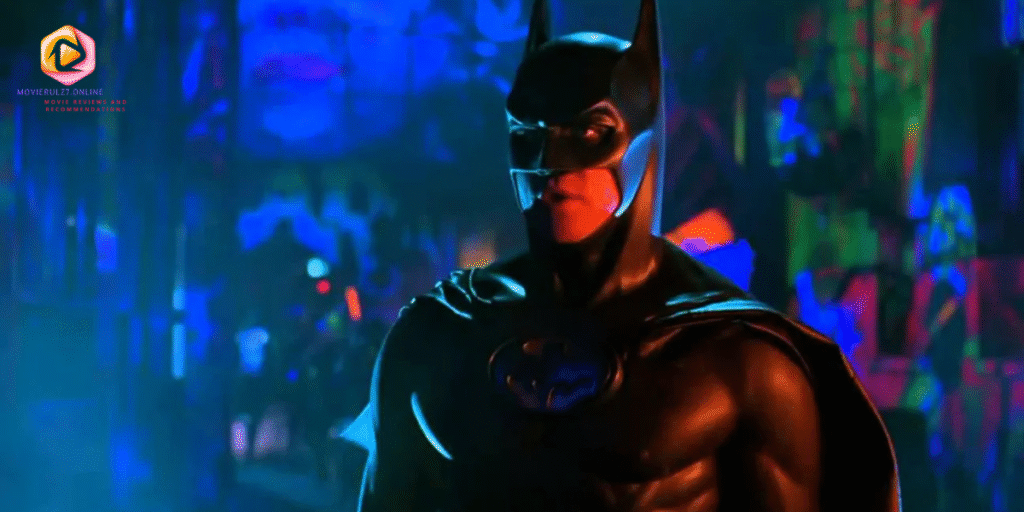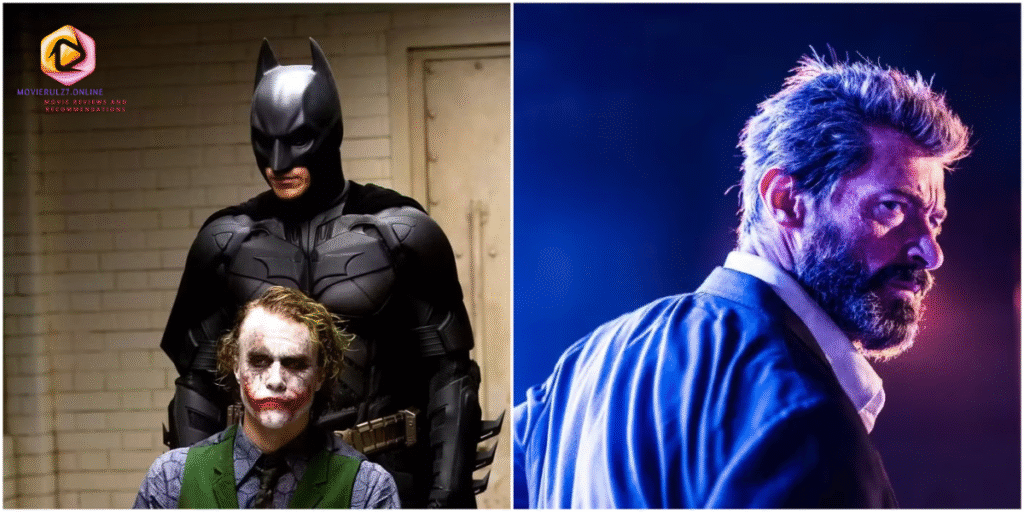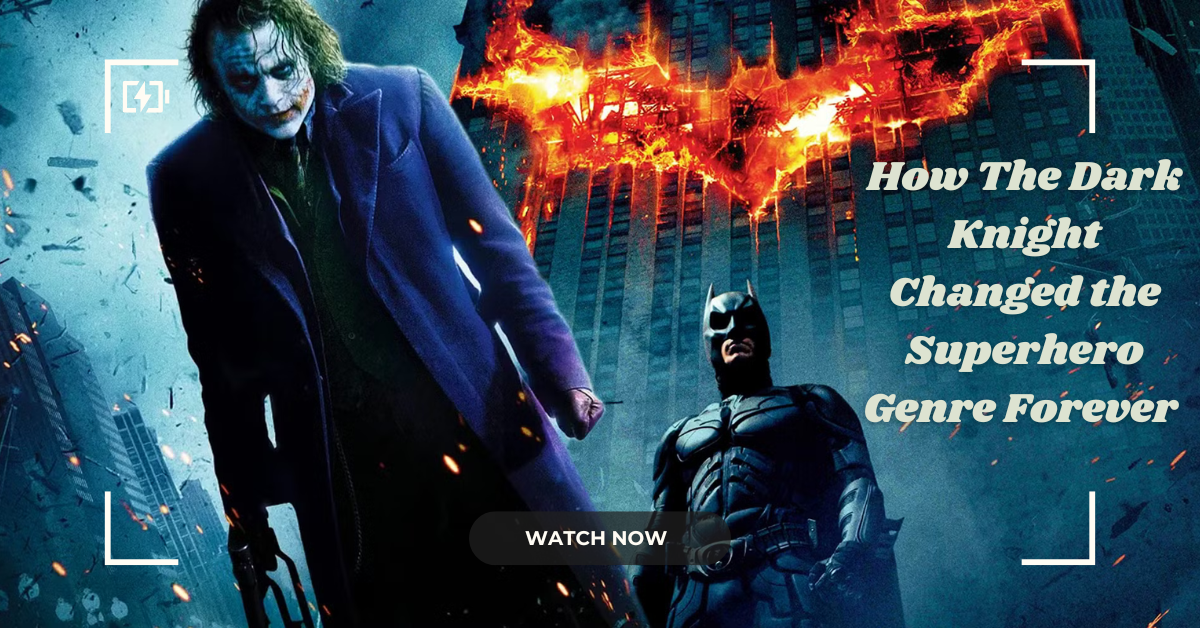When Christopher Nolan’s The Dark Knight premiered in 2008, it did more than just thrill audiences — it redefined the superhero genre. At a time when superhero movies were often dismissed as colorful escapism or kids’ entertainment, The Dark Knight arrived with a dark, sophisticated tone and complex characters that changed Hollywood’s approach to comic book adaptations forever.
Over a decade later, Nolan’s masterpiece remains a benchmark for superhero storytelling, influencing filmmakers, studios, and fans alike. In this article, we’ll dive deep into the groundbreaking elements that made The Dark Knight a genre game-changer and why it continues to shape superhero films in 2025 and beyond.
The Rise of a Darker, More Realistic Superhero Narrative 🎭🖤
Before The Dark Knight, superhero movies were often bright, flashy, and straightforward — think Superman (1978) or Spider-Man (2002). These films usually had clear-cut heroes and villains, simple moral messages, and a lighter tone. Nolan’s vision was radically different.
The Dark Knight presented Gotham City as a gritty, believable urban landscape rife with crime, corruption, and ethical complexity. The movie didn’t shy away from exploring the shadows of justice, order, and chaos, and it showed audiences that superhero stories could handle serious, mature themes.
Nolan’s take on Batman was that of a flawed vigilante — someone who operates outside the law, wrestles with the consequences of his actions, and makes difficult moral choices. This grounded, realistic portrayal connected with older audiences and expanded the genre’s appeal beyond children and comic book fans.
Key Takeaway:
The Dark Knight helped shift the superhero genre from campy fantasy to complex, dramatic storytelling that could stand alongside serious cinema.

Heath Ledger’s Joker: The Gold Standard of Villainy 🃏🔥
One of the most significant reasons The Dark Knight changed the genre is Heath Ledger’s unforgettable Joker. Ledger’s portrayal redefined what a comic book villain could be — a chaotic, anarchistic force that was terrifying yet mesmerizing.
Unlike previous Joker incarnations, which sometimes leaned toward camp or slapstick, Ledger’s Joker was a psychologically rich and disturbing character. His philosophy of chaos challenged Batman’s quest for order and justice, turning their conflict into a profound exploration of morality and human nature.
Ledger’s commitment to the role was intense, involving extensive character study and improvisation. The performance was so compelling it earned him a posthumous Academy Award for Best Supporting Actor — the first Oscar ever awarded for a role in a superhero movie.
Impact on the genre:
The Joker raised audience expectations for villains, pushing filmmakers to create antagonists with depth, unpredictability, and psychological complexity. Today, memorable villains like Thanos (Avengers), Killmonger (Black Panther), and Arthur Fleck (Joker) owe a creative debt to Ledger’s Joker.
Complex, Multi-Dimensional Characters and Moral Ambiguity ⚖️🤔
Before Nolan’s trilogy, superhero movies generally featured heroes who were morally unambiguous paragons of virtue. The Dark Knight challenged that mold by presenting characters with conflicting motivations and internal struggles.
- Batman/Bruce Wayne is torn between his role as Gotham’s protector and the personal toll of living a double life. His willingness to bend or break rules sparks debate on vigilantism and justice.
- Harvey Dent, Gotham’s “White Knight” district attorney, undergoes a tragic transformation into the villainous Two-Face, illustrating how fragile morality can be under pressure.
- The Joker embodies chaos and nihilism, forcing characters and audiences to confront uncomfortable truths about human nature.
This moral complexity gave the story greater emotional weight and encouraged viewers to question traditional notions of good and evil. It showed that superhero films could grapple with ethical dilemmas, making the genre more intellectually engaging.
Technical Innovation and Cinematic Craftsmanship 🎥✨
Nolan’s directorial approach brought a new level of craftsmanship to superhero films. He insisted on using practical effects and real locations rather than relying heavily on CGI, which was groundbreaking for a blockbuster superhero film.
- The IMAX cameras used for select action sequences gave The Dark Knight a stunning visual clarity and immersive scale.
- The famous truck flip scene and the chaotic bank heist were accomplished with minimal digital effects, resulting in authentic, gritty action.
- Hans Zimmer’s intense, haunting score elevated the film’s atmosphere and emotional impact.
This combination of technical excellence and artistic ambition demonstrated that superhero films could achieve the same cinematic artistry as more traditional “prestige” movies.

Impact on Hollywood and the Future of Superhero Films 🚀🎥
The Dark Knight was a massive commercial success, grossing over $1 billion worldwide and receiving critical acclaim. Its achievements convinced Hollywood studios that superhero movies could be more than just kid-friendly entertainment — they could be serious, mature, and award-winning.
This shift paved the way for:
- Darker, grittier superhero films: Logan (2017), Joker (2019), and Venom (2018) explored mature themes and complex characters.
- Character-driven narratives: Studios began investing in deeper storylines rather than relying solely on spectacle.
- Expanded audience demographics: Adults, cinephiles, and mainstream critics embraced superhero movies as a legitimate genre.
- Award recognition: The Dark Knight’s Oscar wins and nominations helped pave the way for other comic book movies to be recognized during awards season.
In many ways, the Marvel Cinematic Universe’s blend of humor and depth owes something to Nolan’s reinvention, balancing blockbuster entertainment with strong character arcs and thematic weight.
Why The Dark Knight Remains Relevant in 2025 and Beyond
Nearly two decades later, The Dark Knight still resonates with audiences. Its themes of chaos vs. order, the burden of heroism, and the complexities of justice remain relevant, especially in today’s socially and politically charged climate.
The movie continues to be studied in film schools and referenced in pop culture, highlighting its timelessness. Upcoming superhero films often pay homage to Nolan’s style, tone, or narrative choices.
For fans and filmmakers alike, The Dark Knight represents the gold standard — proof that superhero movies can be both blockbuster hits and profound cinematic experiences.
Conclusion: The Legacy of The Dark Knight 🏆🦇
Christopher Nolan’s The Dark Knight forever changed the superhero genre by introducing darker tones, complex characters, and cinematic craftsmanship previously unseen in comic book films. Its success showed the world that superhero movies could be serious art, prompting a wave of more mature, thoughtful adaptations.
With unforgettable performances, especially Heath Ledger’s Joker, and a storyline that challenges morality and justice, The Dark Knight set a new creative benchmark. Its legacy lives on in every superhero movie that dares to dig deeper than flashy costumes and explosions.
As superhero cinema continues to evolve in 2025 and beyond, The Dark Knight remains a towering influence — a reminder that beneath the mask, every hero’s story is a reflection of the human condition.
